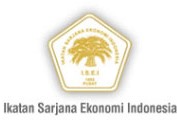How Government Spending on Public Sector Affect The Economic Growth?
(1) University of Lampung
Abstract
Fiscal decentralization is an effort to reform governance so that it has a more effective and efficient structure so that it can improve services to the community. Efforts to achieve these goals are largely determined by the availability of human resources, natural resources, and other economic potential. The formation of New Autonomous Regions (NAR) grew rapidly, but on the other hand local governments were unable to fund development activities independently but were dependent on balance funds. The objective to be achieved is to analyze the effect of regional government spending on education, health, and infrastructure, as well as other variables namely labor on the economic growth of new autonomous regions in Indonesia. The analysis model used is panel data regression. The results of the study prove that local government spending in real per capita education, real health (lag-1) per capita, and real per capita infrastructure, and the number of workers have a positive and significant effect on economic growth. Economic growth that occurs in the district is not different from the city, so also in the base sector is mostly no different except the mining and quarrying sector.
Full Text:
PDFReferences
BAPPENAS, & UNDP. (2008). Studi evaluasi dampak pemekaran daerah 2001-2007 (Darmawan, S. Nazara, D. Jackson, T. Ahmad, & D. A. Purwanto (eds.)). BRIDGE.
Bose, N., Haque, M. E., & Osborn, D. R. (2007). Public expenditure and economic growth: A disaggregated analysis for developing countries. The `Manchester School, 75(5), 533–556. https://doi.org/10.1111/j.1467-9957.2007.01028.x
Colombier, C. (2004). Government and Growth (No. 4; Working Paper, Issue 4).
De Mello, L. R. (2000). Fiscal decentralization and intergovernmental fiscal relations: A cross-country analysis. World Development, 28(2), 365–380. https://doi.org/10.1016/S0305-750X(99)00123-0
Fasoranti, M. M. (2012). The effect of government expenditure on infrastructure on the growth of the Nigerian economy, 1977-2009. International Journal of Economics and Financial Issues, 2(4), 513–518.
Fox, W. F., & Gurley, T. (2006). Will consolidation improve sub-national governments. In Policy Research Working Paper (No. 3913; Policy Research Working Paper, Issue May).
Jiranyakul, K. (2013). The Relation between Government Expenditures and Economic Growth in Thailand (No. 46070; MPRA Paper, Issue 46070). https://doi.org/10.2139/ssrn.2260035
Lin, J. Y., & Liu, Z. (2000). Fiscal decentralization and economic growth in China. Economic Development and Cultural Change, 49(1), 1. https://doi.org/10.1080/00036840903427208
Loizides, J., & Vamvoukas, G. (2005). Government Expenditure and Economic Growth: Evidence from Trivariate Causality Testing. Journal of Applied Economics, 8(1), 125–152. https://doi.org/10.1080/15140326.2005.12040621
Loto, M. A. (2011). Globalization and Economic Development : The Nigerian Experience and Prospects . 1980 - 2008`. Journal of Emerging Trends in Economics and Management Sciences, 2(3), 160–167.
Nurudeen, A., & Usman, A. (2010). Government Expenditure And Economic Growth In Nigeria, 1970-2008: A Disaggregated Analysis. Business and Economics Journal, 1(1), 1–11.
Saad, W., & Kalakech, K. (2009). The nature of government expenditure and its impact on sustainable economic growth. Middle Eastern Finance and Economics, 1(4), 39–47.
Taiwo, M., & Abayomi, T. (2011). Government Expenditure and Economic Development : Empirical Evidence from Nigeria. European Journal of Business and Management, 3(9), 18–29.
Wu, S. Y., Tang, J. H., & Lin, E. S. (2010). The impact of government expenditure on economic growth: How sensitive to the level of development?. Journal of Policy Modeling, 32(6), 804–817. https://doi.org/10.1016/j.jpolmod.2010.05.011
Refbacks
- There are currently no refbacks.

This work is licensed under a Creative Commons Attribution 4.0 International License.






